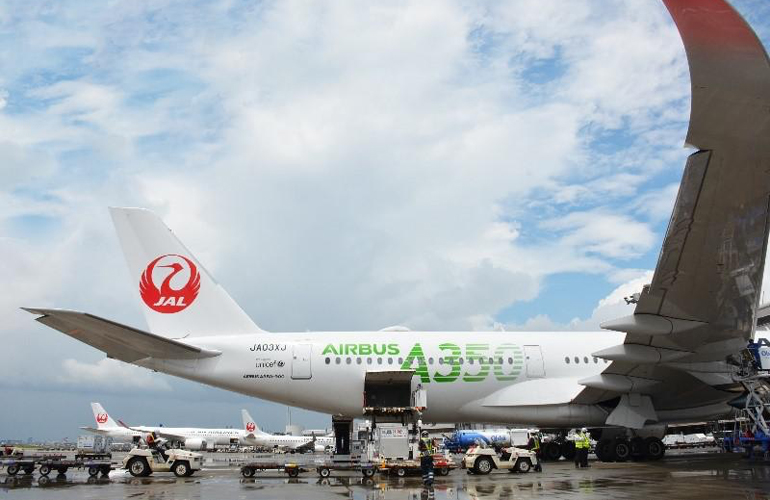Sustainable aviation fuels, or SAFs, are made from waste, biomass or scrap material. While they generate 70% to 90% less carbon dioxide than conventional jet fuel, they can cost up to 10 times as much to produce. The government plans to set up a public-private committee this year to consider specific measures to encourage Japanese companies to make and use these fuels
Domestic production is expected to be key to the government's strategy. Importing SAFs would generate carbon dioxide emissions during transportation, cutting into the benefit of switching to a greener fuel, and the possibility of surging prices presents an increased economic security risk as well.
Efforts to this end are already underway in the private sector. Engineering company JGC Holdings and oil wholesaler Cosmo Oil plan to start up Japan's first commercial SAF production facility in 2025, making up to 30,000 kiloliters of fuel a year.
IHI and Electric Power Development, better known as J-Power, are working on making SAF from microalgae, aiming to bring it to market around 2030. JERA, a 50-50 joint venture between Tokyo Electric Power Co. Holdings and Chubu Electric Power, has partnered with Mitsubishi Power and Toyo Engineering on a plan to turn woody biomass into fuel.
Airlines used a total of 63,000 kl of SAFs worldwide in 2020, equivalent to less than 1% of all jet fuel consumed that year. Supply in Japan, where production is still only in the trial stages, came to only about 300 liters in 2021.
The Japan Transport and Tourism Research Institute estimates that Japan could theoretically produce between 7.06 million kl and 13.13 million kl of SAFs per year by 2030, depending on whether materials such as biomass are repurposed for this instead of electricity production.
A blend of carbon dioxide and hydrogen would make up the largest share of supply, at about 40%, while municipal and industrial waste are together seen accounting for 32%.
Realistically, taking into account the impact of government policies, JTTRI predicts actual supply in 2030 coming to at most 1.34 million kl. That would be just enough to reach the target of replacing 10% of Japanese airlines' jet fuel by that year.
The government's planned committee, with representatives from the transport and industry ministries as well as airlines and fuel companies, will look to clarify the challenges involved.
The European Union has been a trailblazer in the field. A package of measures to combat climate change announced last July includes a proposal that would require suppliers to provide and aircraft operators to use sustainable fuels. Norway and Sweden have already introduced SAF quotas.
Subsidies and tax breaks may be key to encouraging suppliers and airlines to make the switch. U.S. President Joe Biden's administration proposed a SAF tax credit last year.
"All policy tools need to be used to maximize domestic SAF production capability," JTTRI said.
As consumers pay closer attention to climate change-related policies, airlines are facing greater scrutiny, given the industry's high emissions. Air France-KLM in January began adding a SAF surcharge to tickets, while also giving passengers the option to pay for additional sustainable fuel.

